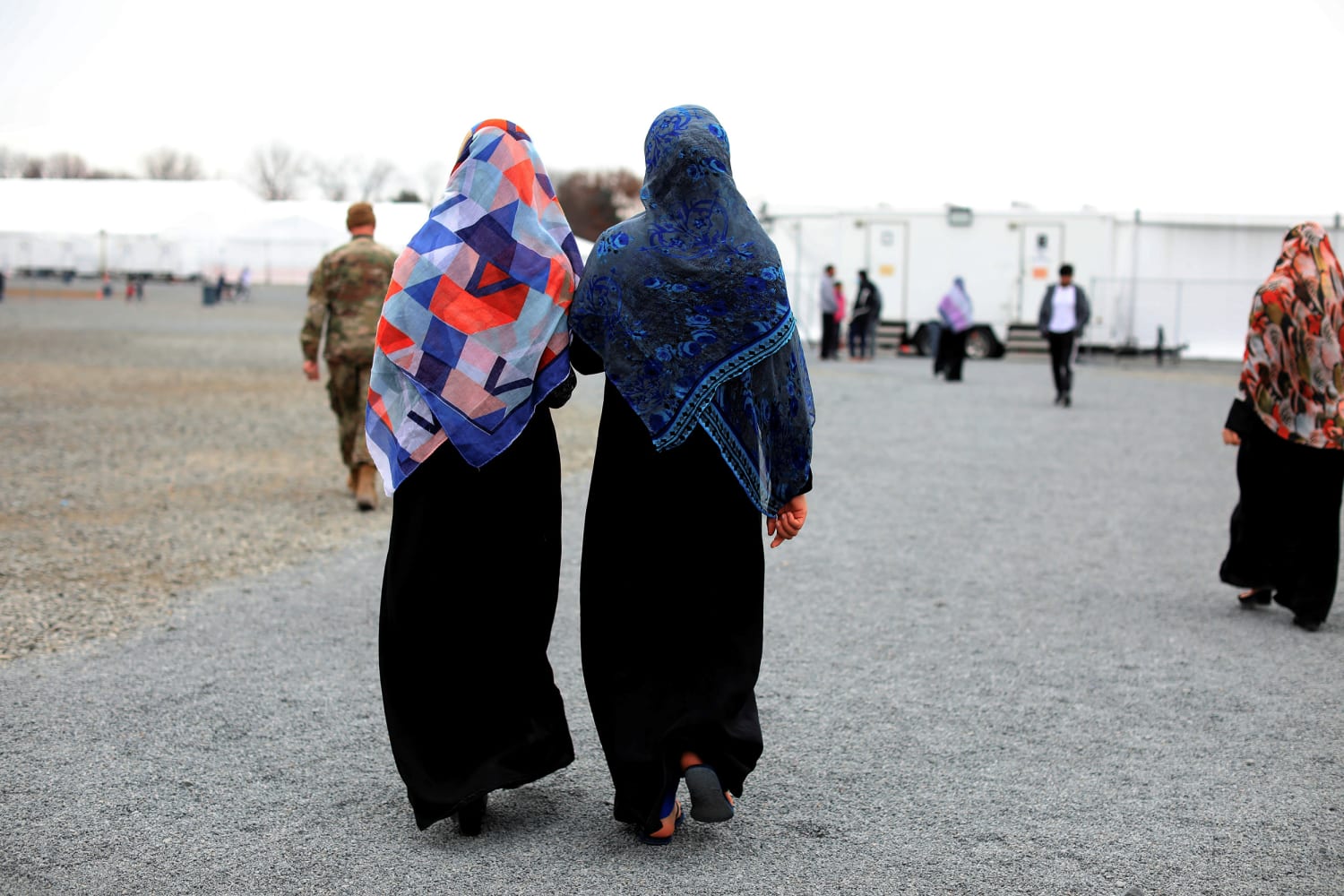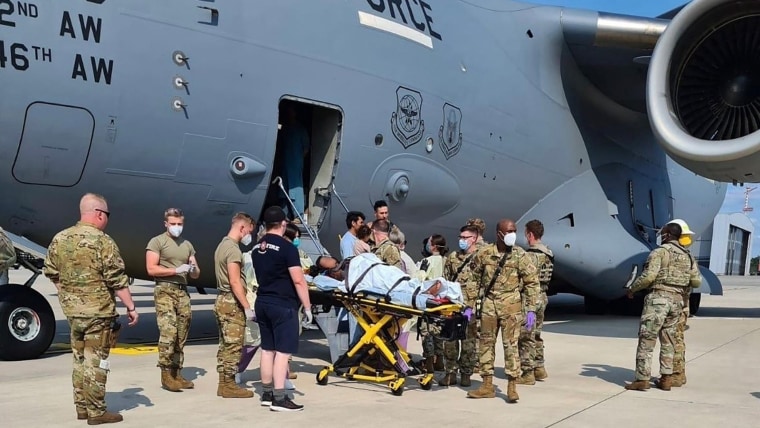It began when I was 15, in Paris, on a cold December night in 1979. We were having dinner at our apartment with the family of a colleague of my father’s from the Afghan Embassy, where my father was finishing out the balance of his four-year diplomatic posting. A news break on the television interrupted dinner, and suddenly the table fell silent as we watched images of Soviet tanks rolling along dusty Afghan roads. I remember the shocked faces around the table, and I can still see a look passing furtively between my parents. Intuitively, I knew in that single glance that our former life was over. We would not be going home.
Like those now facing winter without a permanent residence, my family came to the U.S. with nothing to our name but suitcases of clothes, memories of yesterday and hopes of a vague tomorrow.
In the weeks after the invasion, our household was flooded with news of violence back home. One of my uncles, a judge, was imprisoned and tortured. Another uncle and a cousin were shot. Friends were arrested, some never heard from to this day. My father knew that a similar fate awaited us if we returned. To save his family, my father applied for asylum in the U.S., and one night in September of 1980, less than a year after the Soviet invasion, our family of nine arrived in San Jose, California.
Today, some 35,000 Afghan evacuees still awaiting their new homes are temporarily staying at military bases in the U.S. following the chaotic American evacuation at Kabul Airport this summer. Images of these families waiting for their homes have flooded me with memories of my own refugee experiences.
Like those now facing winter without a permanent residence, my family came to the U.S. with nothing to our name but suitcases of clothes, memories of yesterday and hopes of a vague tomorrow. Those anxiety-riddled early days make me think of Janus, the Roman god of beginnings and transitions, usually depicted as having two faces, one looking back, the other fixed forward.
In San Jose, one set of eyes always gazed back at the life we had left behind. Back in Kabul, my parents had homes, land and established careers. There was an ever-available community of friends, relatives and colleagues nearby. In Afghanistan, our family was never at a loss. But even as my family reckoned with what was gone, we could not afford to stay mired in the past for too long. A new future, as yet inchoate, lay ahead of us at the end of a long, winding path of uncertainty.
The march down this path would begin with a host of tasks: finding a house, applying for a driver’s license, registering my four siblings and me in school, landing work. These tasks strike many Americans as mundane, but for refugees, they are anything but. Restarting life in a new country, tabula rasa, can be a confusing, disorienting, even humiliating ordeal.
Fortunately, we had help. An Afghan American friend, the daughter of a family friend in Paris who worked for UNESCO, became our host and guide. Moved by a powerful sense of solidarity with her fellow Afghans, she let us stay in her house until we found a home of our own, even though another family of Afghan refugees was already staying with her.
She was their lifeline as well as ours. She guided us through the application process for government-sponsored aid. She found a cardiologist for my grandmother and booked her appointments. She showed us how to access medical and housing benefits. She combed through newspaper listings and helped find us a small rental house in east San Jose. She drove us to garage sales on weekends to buy used furniture and household goods.
And she wasn’t alone in coming to our aid: An American friend of hers, doubtless inspired by her example, drove my parents to appointments; a kindly pastor with a janitorial side gig helped my father through a job application process and bought me and my brother a bicycle.
Afghans now arriving in the U.S. will experience the same disorientation my family did. They will need the same kind of help to beat back feelings of despair and helplessness, and to embrace the prospect of becoming different people from whom they were before.
However, over the past four years, the resources of the government-funded resettlement agencies tasked with receiving refugees and helping them integrate into U.S. life have been decimated. They simply don’t have the capacity to support all the Afghan evacuees waiting on military bases.
To help close this gap, the Biden administration recently announced the creation of The Sponsor Circle Program for Afghan refugees. This program represents one of the most significant changes to the U.S. resettlement system since its modern-day inception with the 1980 Refugee Act, moving from primarily government-managed absorption assistance to a process in which ordinary Americans play the role of primary anchor helping Afghan newcomers integrate into U.S. communities.
In coordination with the State Department, a small but growing number of nongovernmental organizations vet, train and provide ongoing guidance and support to American volunteers who organize in groups of five or more to apply through the Sponsor Circle website to welcome an Afghan family. Once approved and prepared, the group then raises money, organizes housing, enrolls children in school and helps with all the other essential details of integration for a minimum of 90 days.
RefugePoint, which has been rescuing and resettling refugees for decades, is the NGO stationed at U.S. military bases to assign Afghans to circles for absorption. My friend Sasha Chanoff, who won a Charles Bronfman Prize for his work founding and running RefugePoint, acknowledges that American sponsors must make a significant commitment of time and resources. But he also speaks of how taking part in this program reconfirms and energizes America’s identity as a country formed through its embrace of immigrants and refugees. People who participate in this kind of endeavor often say that it’s among the most profound and meaningful experiences of their lives.
Some of the first sponsor circles are being formed by U.S. veterans who served in Afghanistan. Others are led by Afghan American families whose relatives were evacuated to military bases. But many others are being formed by American volunteers with no specific connection to Afghanistan who simply want to help.
I don’t know how my family would have managed without our host. But with her generosity and guidance, we established ourselves in our new community in San Jose, became self-reliant and began the long and ultimately successful work of building new, productive lives. We were lucky to have a family friend in the U.S who was willing and able to help us. While the majority of Afghan newcomers may not be as lucky, sponsor circles can provide them with the same lifeline.
Restarting life in a new country, tabula rasa, can be a confusing, disorienting, even humiliating ordeal. Fortunately, we had help.
This week, the first Afghan families left military bases and began integrating into communities in Washington state and Vermont with the help of American sponsors under this program. As winter closes in and Americans gather with their own families to celebrate the holidays, I hope we might all consider what we can do to help those Afghan allies still sheltering in military bases, waiting to move into permanent homes and resume their lives.
The scenes at Kabul Airport this summer were gut-wrenching and heart-breaking. I believe, however, that the aftermath offers this country a moment of potential transformation. The idea of welcoming the stranger is a key value that is converging with a sense of duty and responsibility to help our Afghan allies. Now Americans have a unique opportunity to help Afghan families rebuild lives that were suddenly torn away from them. When we as Americans come together to do this, we are not just helping Afghan newcomers, as my family was helped, but also bettering ourselves, enriching our communities and restoring a sense of ourselves as Americans.
Source: | This article originally belongs to Nbcnews.com











